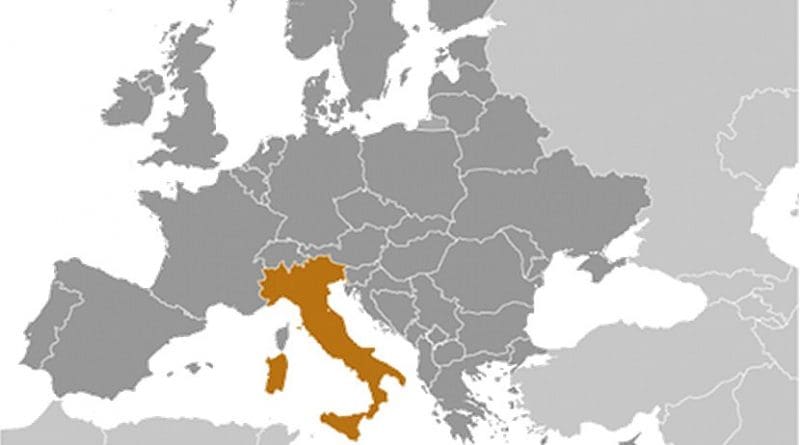Minister Paolo Savona: A Fine And Enlightened Economist – OpEd
By Giancarlo Elia Valori*
Paolo Savona was and still is an essential figure to understand the recent Italian economic and financial history.
He was Minister of Ciampi’s government in 1993, just at the time when Italy’s entry into the single currency system was being planned. We will revert to this issue at a later stage.
From the beginning of his university studies, Paolo Savona was one of Guido Carli’s favourite students. Shortly after graduation, he won a public competition for the Bank of Italy when Guido Carly was Governor. He started to work for the Research Department of the Bank of Italy and later became Director of the Financial Markets Department. Paolo Savona attended Franco Modigliani’s courses at the MIT in Cambridge (USA) and is one of the few Italians who collaborated with the Special Studies Section of the Federal Reserve in Washington, D.C.
Within the Bank of Italy he collaborated with Paolo Baffi and Antonio Fazio, with whom he created the first econometric model of the Italian economy, known as M1BI.
After obtaining a University chair by public competition, he followed Guido Carli in Confindustria as General Director. He was later President of the Credito Industriale Sardo, CEO of the Banca Nazionale del Lavoroand President of the Fondo Interbancarioper la Protezione dei Depositi, as well as of Gemina, Aeroporti di Roma, Consorzio Venezia Nuova and finally Director of RCS.
Italy’s former President of the Republic, Francesco Cossiga, always appreciated his great knowledge of economic issues, as well as his intellectual creativity, scientific rigor and sense of humor.
At political level, Paolo Savona was Industry Minister in the aforementioned Ciampi’s government and Head of the Department for European Policies in the third Berlusconi’s government of 2005-2006, as well coordinator for the EU’s “Lisbon strategy”.
In short, a brilliant, long and well-deserved career, always halfway between economic theory and professional commitment.
Paolo Savona has never been a “contract consultant”, like some other figures of the current and previous Republics, but he has always been faithful to his line of thought, which he sometimes imposed on governments and companies.
Hence its current role in Prime Minister Conte’s government is decisive for Italy.
It is worth noting that, according to Paolo Savona, Italy shall not leave the Euro at all. Nevertheless, also former Prime Minister Ciampi, a committed Europhile, agreed with him in saying that the Euro and the monetary union was “lame and lopsided”.
Some ignorant people who adore clichés and stereotypes portrays Paolo Savona as a “Europhobe”. A big mistake in the political evaluation of such a brilliant manager.
As Prime Minister, Ciampi said that if the “lame and lopsided” Union and its currency were not changed, they would widen the gap between strong and weak EU regions.
In fact, Paolo Savona does not ask for anything not falling within the scope of the EU Treaties: it asks for the monetary union to comply with Article 3 of the Lisbon Treaty, which means abiding by the European Constitution.
Article 3 is the one spelling out the goal of sustainable development in Europe, as well as of full employment and social progress.
There is nothing here echoing and resembling the rumors about the notorious “B Plan” to make Italy walk out of the EU – a plan which has obviously been designed and drafted for some time in every European country.
What is the plan that Paolo Savona has in mind now that he is Minister for the second time?
Italy’s evils are well-known. Its public debt prevents it from investing. In Minister Savona’s mind, however, Italy can have approximately 50 billion euro of new investment, which is the amount equal to our surplus of unused savings, as shown by the 2.7% of foreign trade current accounts.
If the multiplier of this investment is 2, which is a low level, the GDP will rise by 35 billion euros, resulting in a 17 billion euro increase in tax revenue, which will allow to simultaneously start implementing all current government’s projects, without dangerous public debt increases.
There are three problems, however, which could prevent the implementation of this plan. Firstly, anti-corruption procedures make all investment long and difficult and, in fact, the government is working to simplify and streamline them, without relinquishing its aim to fight against organized crime.
Secondly, there is the need to check the time elapsing between investment and consumption spending, which is not easy at all.
Thirdly, the European Commission should allow the implementation of the 50 billion euro plan, which would initially make the deficit / GDP ratio increase, but later – thanks to the multiplier’s effect – would make it decrease well beyond current levels.
The European Commission, however, is dominated by countries that are not Italy’s friends, but competitors.
Therefore Minister Savona’s project is likely to be opposed and hence Italy shall be very careful about future speculative attacks on its foreign debt.
Hence what will Minister Savona do? Nobody knows the answer to this question yet, but he will certainly do well.
About the author:
*Advisory Board Co-chair Honoris Causa Professor Giancarlo Elia Valori is an eminent Italian economist and businessman. He holds prestigious academic distinctions and national orders. Mr Valori has lectured on international affairs and economics at the world’s leading universities such as Peking University, the Hebrew University of Jerusalem and the Yeshiva University in New York. He currently chairs “La Centrale Finanziaria Generale Spa”, he is also the honorary president of Huawei Italy, economic adviser to the Chinese giant HNA Group and member of the Ayan-Holding Board. In 1992 he was appointed Officier de la Légion d’Honneur de la République Francaise, with this motivation: “A man who can see across borders to understand the world” and in 2002 he received the title of “Honorable” of the Académie des Sciences de l’Institut de France
Source:
This article was published by Modern Diplomacy.

